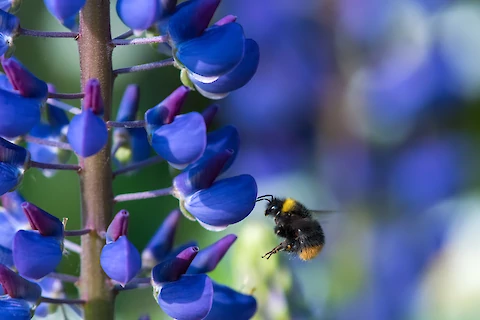
If you love giving your green thumb a workout and watching your garden flourish, you're in the right place. In this blog post, we're diving into a unique aspect of gardening: helping pollinators flourish in your beautiful outdoor nook.
Ever thought about what vital role bees, butterflies, and even hummingbirds can play in your backyard? Well, these friendly creatures add charm to your garden and are instrumental in maintaining a healthy ecosystem. So, let's learn how we can return the favor and make our gardens a heavenly paradise for these small but mighty pollinators. Let’s buzz into action!
The Importance of Pollinators in a Garden
Pollinators are the unsung heroes of a thriving garden. They are responsible for reproducing a significant portion of the plants that make up the world's food supply. However, these tireless workers are facing numerous challenges, ranging from habitat loss to harmful pesticides. They need our help, and as garden enthusiasts, there is much we can do to provide them with a safe and nourishing environment.
Creating a Pollinator-Friendly Garden
Here are some actionable strategies you can use to provide a haven for pollinators.
Plant Native Flowers
Choosing native flowers is one of the best ways to support pollinators. These plants have co-evolved with local pollinators and are often better suited to meet their needs. Here in Virginia, sunflowers, wild lupine, and bee balm are great options. These vibrant blooms will not only attract a swarm of pollinators but also add a splash of color to your garden. You can learn about flowers native to our state on the Virginia Native Plant Society website.
Provide Habitat
Believe it or not, your garden could be a pollinator's dream home. Birds, bees, butterflies, and other pollinators need safe places to breed and rest. You can let a section of your garden grow wild, or install a mason bee house or a pollinator hydration station. Creating a "messy" area with leaves and twigs can also provide a fantastic nesting opportunity for these creatures.
Avoid Harmful Pesticides
Pesticides are a major threat to our pollinating friends. They can be lethal or impair the pollinators' ability to forage and reproduce. Instead, opt for organic and natural or non-toxic pest control measures. These might include introducing beneficial insects, using homemade sprays, or simply handpicking pests from your plants.
The Benefits of a Pollinator-Friendly Garden
A garden buzzing with pollinators isn't just good for the environment; it's also a sight to behold. Watching bees and butterflies flit from flower to flower can be a tremendous source of joy and relaxation. Moreover, gardening itself offers numerous health benefits, from improving physical fitness to alleviating stress. In other words, by helping pollinators, you're also helping yourself.
Garden With Senior Helpers
As you can see, creating a pollinator-friendly garden is not only feasible but also immensely rewarding. It's an ideal way for seniors to stay active, enjoy nature, and contribute to the preservation of our precious ecosystems. Maybe it's time to let your gardening hobby take flight!
If you need any assistance in making your garden a haven for pollinators, contact us at Senior Helpers Springfield-Manassas, VA. We assist seniors with their favorite hobbies and lend a hand with self-care and day-to-day chores. As your companions, let's work together to provide a safe and thriving environment for our pollinator buddies.